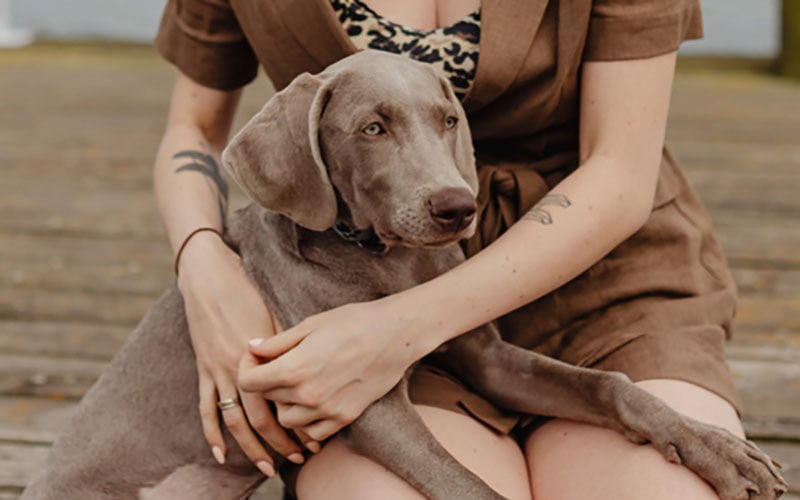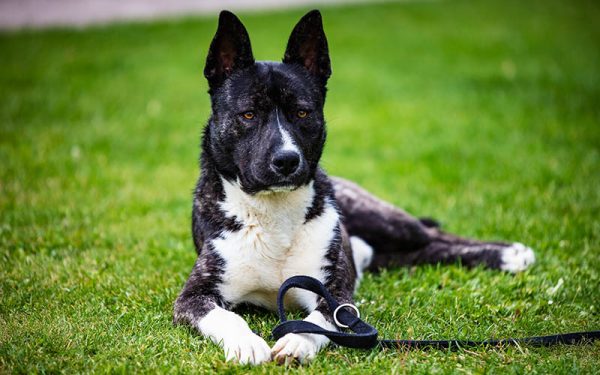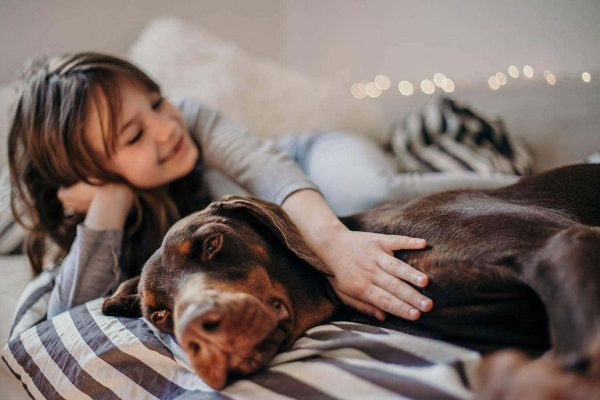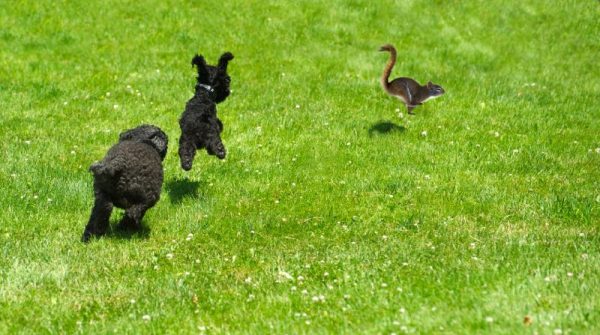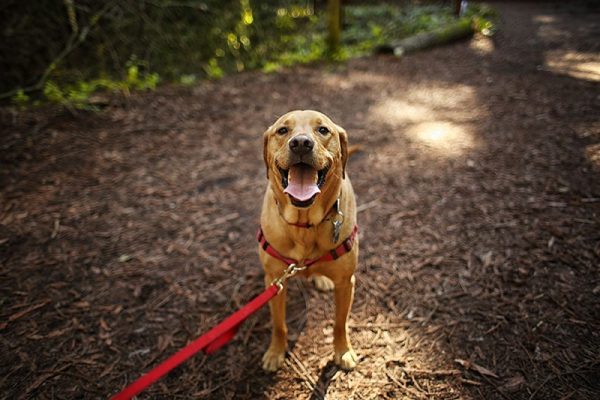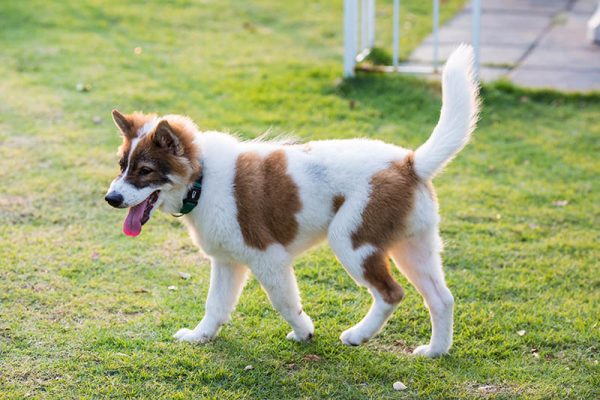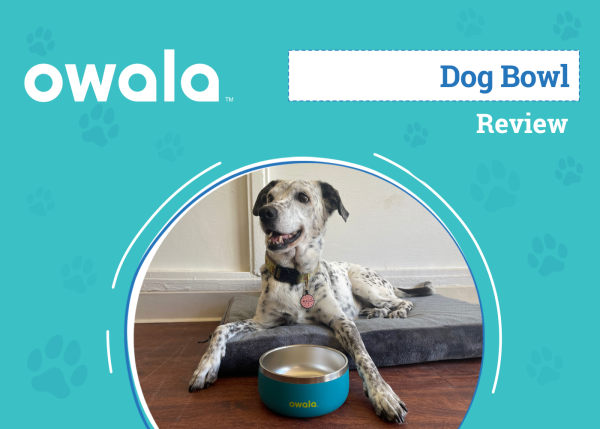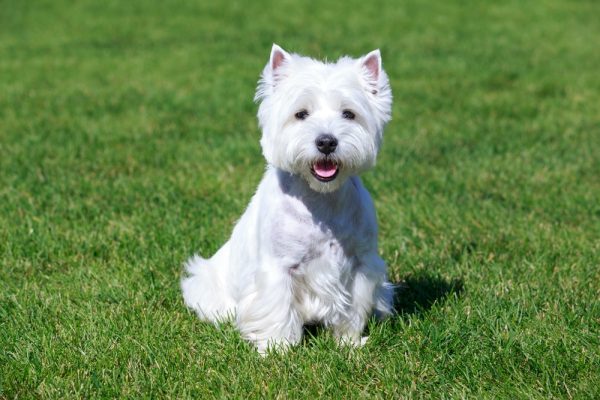Dogs are famously known as “man’s best friend,” largely due to their unwavering loyalty. This loyalty stems from a complex mix of behavioral and biological factors that have evolved over the thousands of years dogs have been domesticated. From their pack animal origins and dependency on humans for survival to their ability to form emotional bonds, dogs exhibit loyalty in ways that we humans should learn. Let’s take a look at a few reasons why dogs are so loyal to their humans.

Top 4 Reasons Why Dogs Are So Loyal
1. Evolution and Domestication
Dogs descended from wolves, who are pack animals. Living in packs requires cooperation and loyalty from all members. These traits have been passed down through generations and can still be observed in dogs today. In their human families, dogs understand that loyalty to their humans increases their chance of survival.
Humans have domesticated dogs for thousands of years. During this time, traits like loyalty and companionship were likely favored and thus became more pronounced. Selective breeding over centuries has further emphasized these traits. Several dogs have made history for their loyalty to their owners; dogs around the world have been known to patiently wait for their dead owner’s return for years without giving up on them.
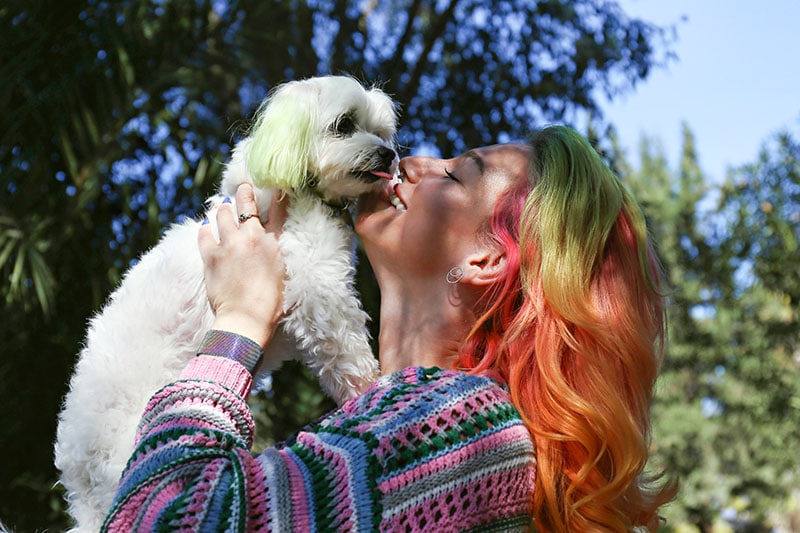
2. Biological Factors
Dogs rely on humans for food, shelter, and safety. Their loyalty can be seen as a survival instinct, recognizing humans as providers of their needs. Interaction with humans increases the release of the hormone oxytocin in dogs, which is associated with bonding and trust. This biochemical connection can foster loyalty.
3. Behavioral Aspects
Training plays a crucial role in reinforcing loyalty in dogs. Commands and routines help establish a strong bond between dogs and their owners. Socializing dogs from a young age helps them get comfortable around humans and enhances their loyalty.
Rewarding dogs for good behavior strengthens their association of positive experiences with their owners, enhancing their loyalty. Dogs tend to repeat behaviors that get them rewards. If their loyalty – staying close, protecting the family, following commands – gets them rewards like treats, praises, or petting, they are likely to continue being loyal.
Dogs thrive on routine. A consistent routine where they interact, play, and work with their owners regularly can foster their loyalty.
4. Emotional Connections
Dogs have been shown to read human emotions and often respond empathetically, which strengthens their bond with their owners. Dogs are companion animals and thrive on companionship. The time and experiences shared with their human families foster a deep sense of loyalty.
Dogs are emotionally intelligent animals capable of forming deep emotional bonds with their owners. They can sense their owner’s mood and often respond in ways that seem empathetic, further solidifying their loyalty. Dogs may not feel gratitude in the way humans do, but their loyalty can be seen as a form of it. When you take care of a dog, providing them with food, shelter, and love, the dog recognizes you as a provider and friend.
Dogs also feel secure in the company of their human families. This sense of security can enhance their loyalty.
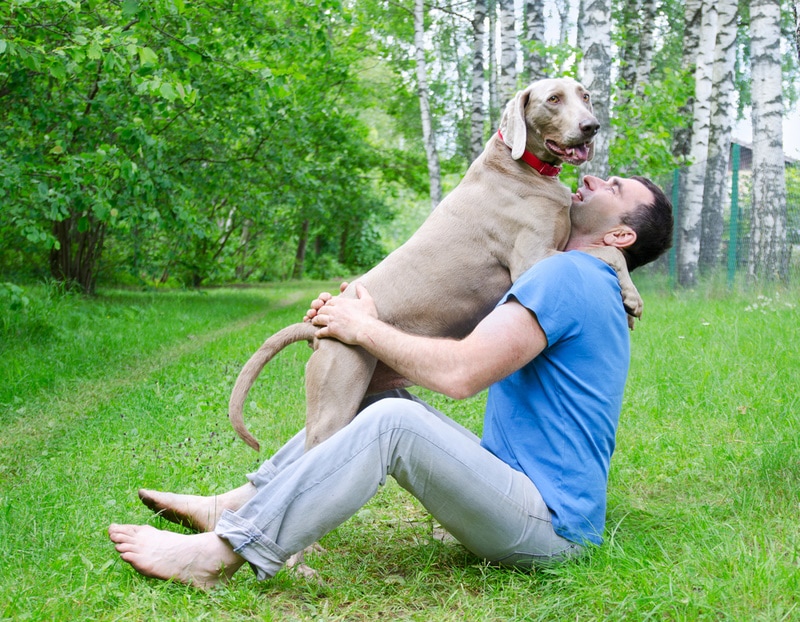

How to Build Loyalty in Your Dog
Training a dog to be more loyal involves building trust, establishing a strong bond, and ensuring that they feel secure and loved. Here are some tips:
- Start Training Early: The earlier you start training your dog, the better. Young dogs are more impressionable and can learn quickly. Use positive reinforcement techniques to encourage desired behaviors.
- Establish Trust: Trust is the foundation of loyalty. Be consistent, patient, and kind in your interactions with your dog. Avoid harsh punishments and instead focus on positive reinforcement.
- Spend Quality Time Together: Spend time each day playing with your dog or simply cuddling on the couch. This helps to strengthen the bond between you.
- Provide Structure and Routine: Dogs thrive on routine. Regular feeding times, walk times, and playtimes can help your dog feel more secure and reinforce their loyalty.
- Learn to Communicate: Understanding your dog’s body language and learning to communicate effectively can help build loyalty. Respond to their needs and let them know you understand them.
- Socialize Your Dog: Socializing your dog from a young age can help them become more comfortable around people and other animals, which can in turn increase their loyalty to you as their primary caregiver.
- Be a Strong Leader: Dogs are pack animals and look for a leader. By being a strong leader – setting boundaries, providing for their needs, showing kindness and fairness – you can earn your dog’s loyalty.
- Reward Loyalty: If your dog shows signs of loyalty, reward them with praise, treats, or extra playtime. This will reinforce the behavior and encourage them to be more loyal.
- Provide for Their Needs: Ensure your dog’s basic needs – food, water, shelter, exercise, and healthcare – are met. A dog that feels cared for is more likely to be loyal.
- Show Affection: Dogs are affectionate animals and respond well to love and attention. Regularly showing your dog affection can foster loyalty.
Remember that building trust takes time and patience. Every dog is unique, so it’s important to adapt your approach to suit your dog’s personality and needs. But a dog that trusts you and feels comfortable, safe, and secure with you is biologically destined to be loyal to you.

When Is Loyalty a Problem?
Loyalty in dogs is typically a positive trait, but it can become a problem in certain situations.
Over-Attachment
A dog’s loyalty can sometimes turn into over-attachment or dependency, leading to separation anxiety when the owner is not around. This can cause distress for the dog and problematic behaviors, such as excessive barking, destructive chewing, or inappropriate elimination.
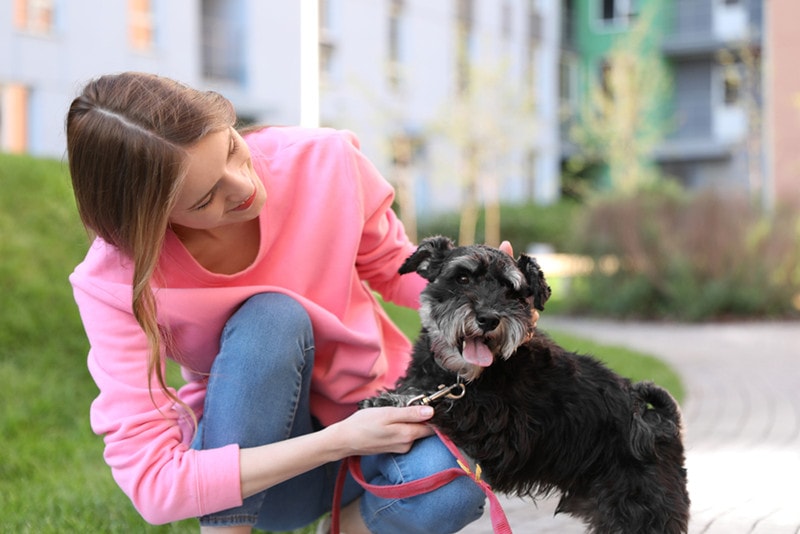
Aggression Due to Over-Protection
Some loyal dogs may become overly protective of their owners, leading to aggressive behavior towards strangers or other animals. This can make social interactions difficult and potentially dangerous.
Lack of Socialization With Other Dogs
Extremely loyal dogs may prefer the company of their owners to the point where they do not interact well with other dogs. This can limit their socialization opportunities and lead to behavioral issues.
Ignoring Health Issues
In some cases, a loyal dog may hide signs of illness or discomfort to avoid causing concern for their owner. This can delay necessary medical treatment.

Inability to Adapt to New Owners
If an owner can no longer care for their dog and the pet needs to be rehomed, a dog’s deep loyalty may make it difficult for them to adjust to a new home and owner.
Difficulty Training
Dogs that are overly loyal to one person may have difficulty learning from others, which can present challenges in multi-person households or if the dog needs to be trained by a professional.
While these issues can pose challenges, many can be managed or prevented through proper training, socialization, and care.

Frequently Asked Questions
Are some dog breeds more loyal than others?
While all dogs have the potential to be loyal, certain breeds are often recognized for their particularly loyal nature. These breeds include the German Shepherd, Boxer, and Labrador Retriever.
Do dogs feel love for their owners?
Yes, studies have shown that dogs can develop strong emotional bonds with their owners, similar to the bonds humans share.
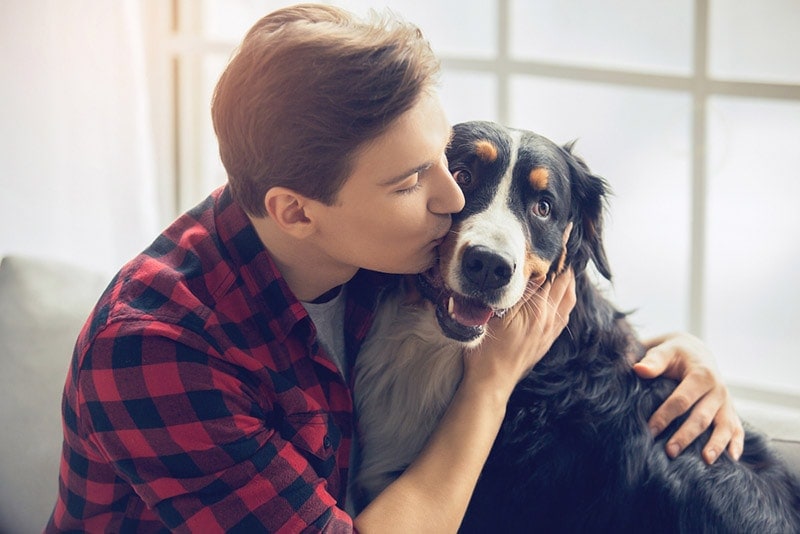
Why do dogs follow you everywhere?
Dogs are descendants of pack animals and are wired to stay close to their pack members. Following you around could be their way of expressing this natural behavior by exhibiting their loyalty and experiencing companionship.
Can dogs sense their owner’s emotions?
Yes, research has shown that dogs are capable of recognizing human emotions and can often mirror their owner’s feelings.
How long does it take for a dog to bond with its owner?
The bonding process can vary greatly for each dog and depends on factors like the dog’s age, breed, and past experiences. However, most dogs start to form a bond with their new owners within a few days or weeks.
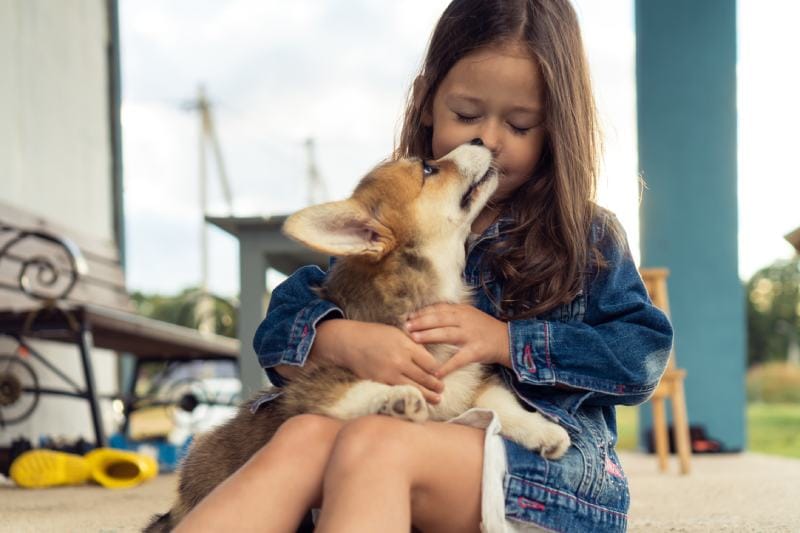
Can dogs remember their previous owners?
Dogs have a good memory and can remember their previous owners, especially if they had a strong bond or the separation was recent.
Why do dogs protect their owners?
Dogs’ loyalty often translates into protective behavior. This can be due to their evolutionary origin as pack animals, where protecting pack members is crucial for survival.
How can I tell if my dog is loyal?
Signs of a loyal dog can include following you around, coming when called, defending you or your home, and showing affection.

Conclusion
A dog’s loyalty is a product of their evolutionary history, biological factors, behavioral conditioning, and emotional connections. These elements work together to create the loyal, loving companions we’re so lucky to have in our lives.
- You might also like: My Cat Has Fleas, How Do I Clean My House?
Featured Image Credit: Rawpixel.com, Shutterstock

